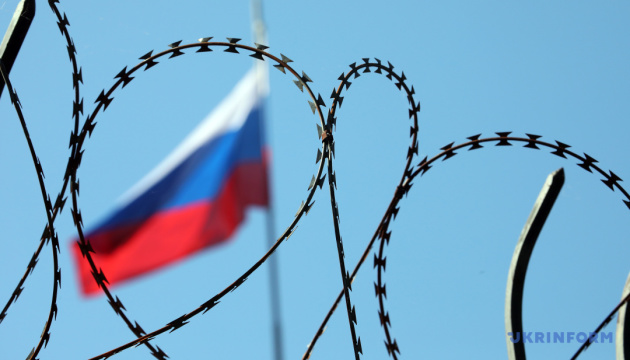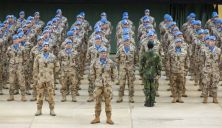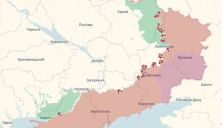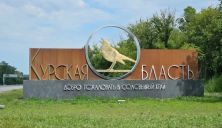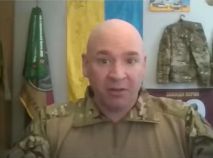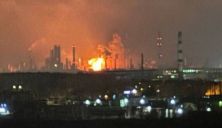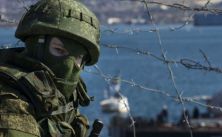Putin’s attempt to silence critics of Soviet crimes is an attack on the future, as well as the past.
When I moved to Moscow in 1998 one of my first visits was to Memorial’s offices. The group’s cramped rooms were cluttered with the fruits of a recent appeal to school children to ask grandparents for memories of the Stalin-era Great Terror. In childish script on flimsy paper, each account was a tiny particle of historical truth and knowledge, unearthed from a generation that had expected to take its secrets to the grave.
In three decades of legal existence, which ended with court-imposed liquidation last week, Memorial has meticulously documented the Gulag and its victims. But it is far more than a historical research charity. It is a large part of what is left of Russia’s civic conscience.
Not only did the Soviet regime kill 20 million people, it made the topic taboo. Stories about denunciations, show trials, interrogations and deportations, and of deaths by hunger, torture and mass execution, were shared in private whispers, or not at all. Official accounts were amnesiac. “It was a long time ago and it never happened anyway”, is how the historian David Satter characterises this institutionalised deceit.
By chronicling the crimes, Memorial exposed the lies. Its founders included the moral godfather of Russian democracy, the physicist-dissident Andrei Sakharov. It exemplified the hopes of the late 1980s and 1990s for a country that would be at peace not only with its own tortured past but with its neighbours: many of Stalin’s victims came from outside Russia.
Those hopes are dead. The pretexts for Memorial’s closure include breaching Russia’s sweeping “foreign agents” law, which in effect bans accepting any money from abroad. Another is “destabilising the country”. The group has been charting modern Russia’s descent into authoritarianism. Its list of political prisoners, for example, now numbers more than 400. Officials claim that this “aims to sow negative views about Russia’s judiciary and disinform the public”.
But the real danger it poses is deeper. President Putin’s legitimacy rests increasingly on a nostalgic narrative, eliding modern Russia with the Soviet Union’s finest hour, its heroic, single-handed battle to free the world of the Nazi plague. (British readers may find this solipsistic, simplistic approach to wartime history oddly familiar.)
An obvious weak spot in this is Stalin’s record, which undermines any attempt to depict him as a hero, genius or liberator. Restoring the taboo about Stalin’s crimes thus safeguards not only Russian self-esteem but legitimises Putin’s regime.
The line is simple. Stalin fought the Nazis. Critics of Stalin must therefore be Nazi sympathisers. Put like this the syllogistic logic sounds ridiculous. But it is exactly the charge against Memorial. “By cashing in on the subject of political reprisals of the 20th century, Memorial is mendaciously portraying the USSR as a terrorist state and whitewashing and vindicating Nazi criminals,” Alexei Zhafyarov, part of the prosecution team, said. “Why should we, the descendants of the victors, have to see the vindication of traitors? [Memorial] makes us repent of the Soviet past, instead of remembering its glorious history.”
In truth, the history is chequered, to put it mildly. Communist and Nazi totalitarianism overlapped. Stalin and Hitler were allies before they were foes. Stalin’s paranoia led him to eviscerate the armed forces and ignore warnings of the impending Nazi attack. The same Soviet forces that, with huge sacrifice, liberated eastern Europe from the Nazi yoke were harbingers of a new tyranny. Modern Russians are not to blame for this. But they should bear it in mind.
Germans certainly do. They regard their country’s Nazi past with revulsion, not pride. It is unimaginable that modern Germany would ban the study of the Holocaust because it damaged the country’s image abroad and morale at home. Even today, ancient Nazis sometimes totter into German courts. But their Soviet counterparts have not faced such risks in Russia, which never held Nuremberg trials or a South African-style truth and reconciliation process. On the contrary, Soviet symbols are now revered – Russia’s ice hockey team recently played a match in Finland wearing USSR shirts.
Whitewashing Soviet crimes is a chilling signal to people in all countries that suffered from them. Putin is in effect saying: “We are not sorry for what we did to you. We can do it again.” As Nicolas Tenzer, a French academic, notes, the deeper significance of this is that Putin is resurrecting the Soviet notion that justice and truth are not the basis of civilisation but mere tools to be used for political ends.
Mythmaking presents Russia as a besieged fortress, justified in silencing critics at home or in defending itself from mendacious and threatening outsiders – for example Ukraine. Stalin’s artificial famine in that country in the 1930s, which killed untold millions, is one of many reasons that modern Ukrainians cherish their independence from Moscow. The less Russians know of this, the more they will support Putin’s aggression now.
We could counterattack. One priority should be to support Memorial, if necessary by hosting its staff and digitised archive abroad. Another is to support Russia’s neighbours in their attempts to push back against the Stalinist version of history and in being more honest about our own. But the outlook is grim. The Chinese Communist Party has succeeded in obliterating swathes of that country’s blood-drenched history from public discourse. Putin must fancy his chances too.
By Edward Lucas

